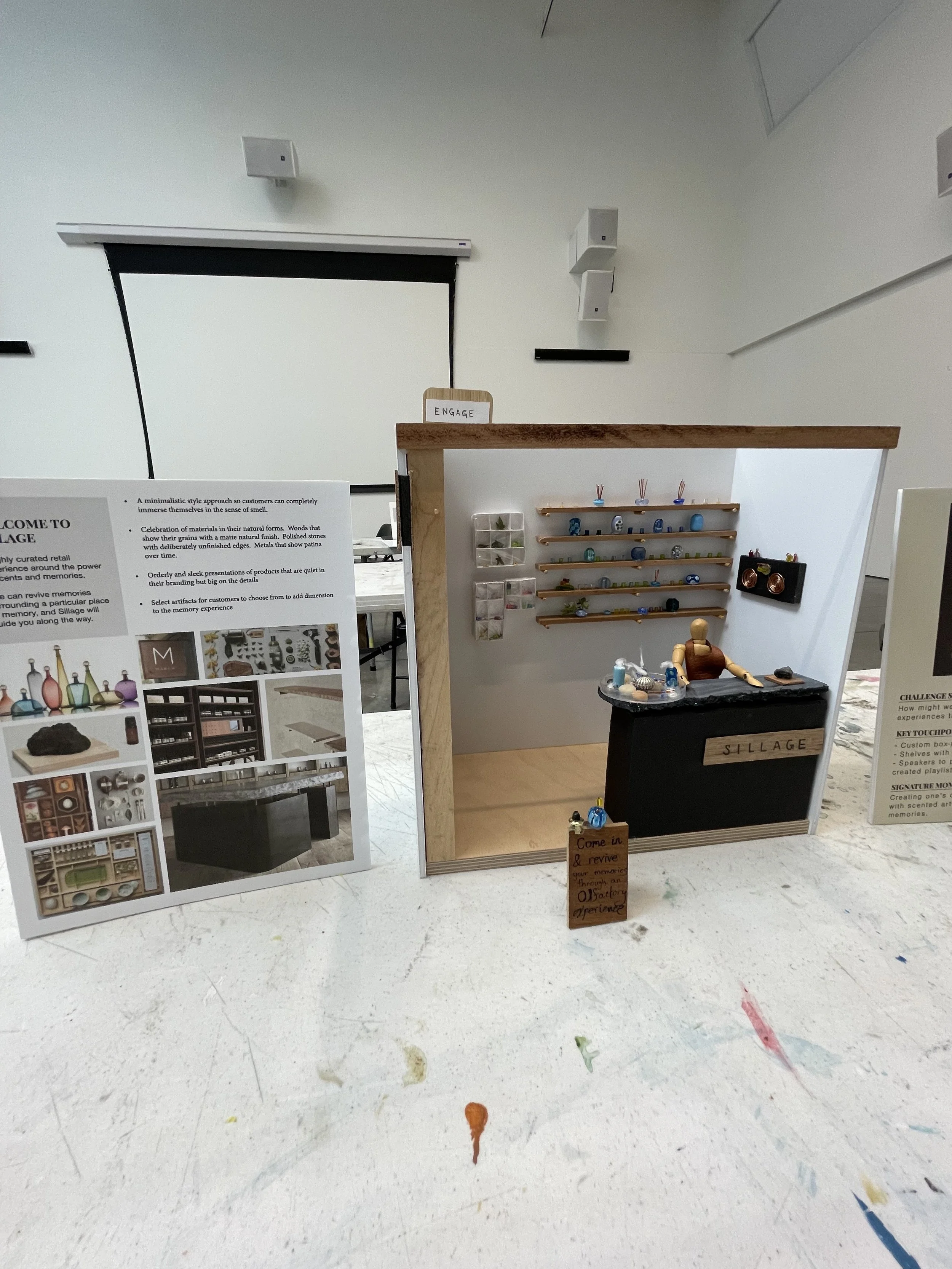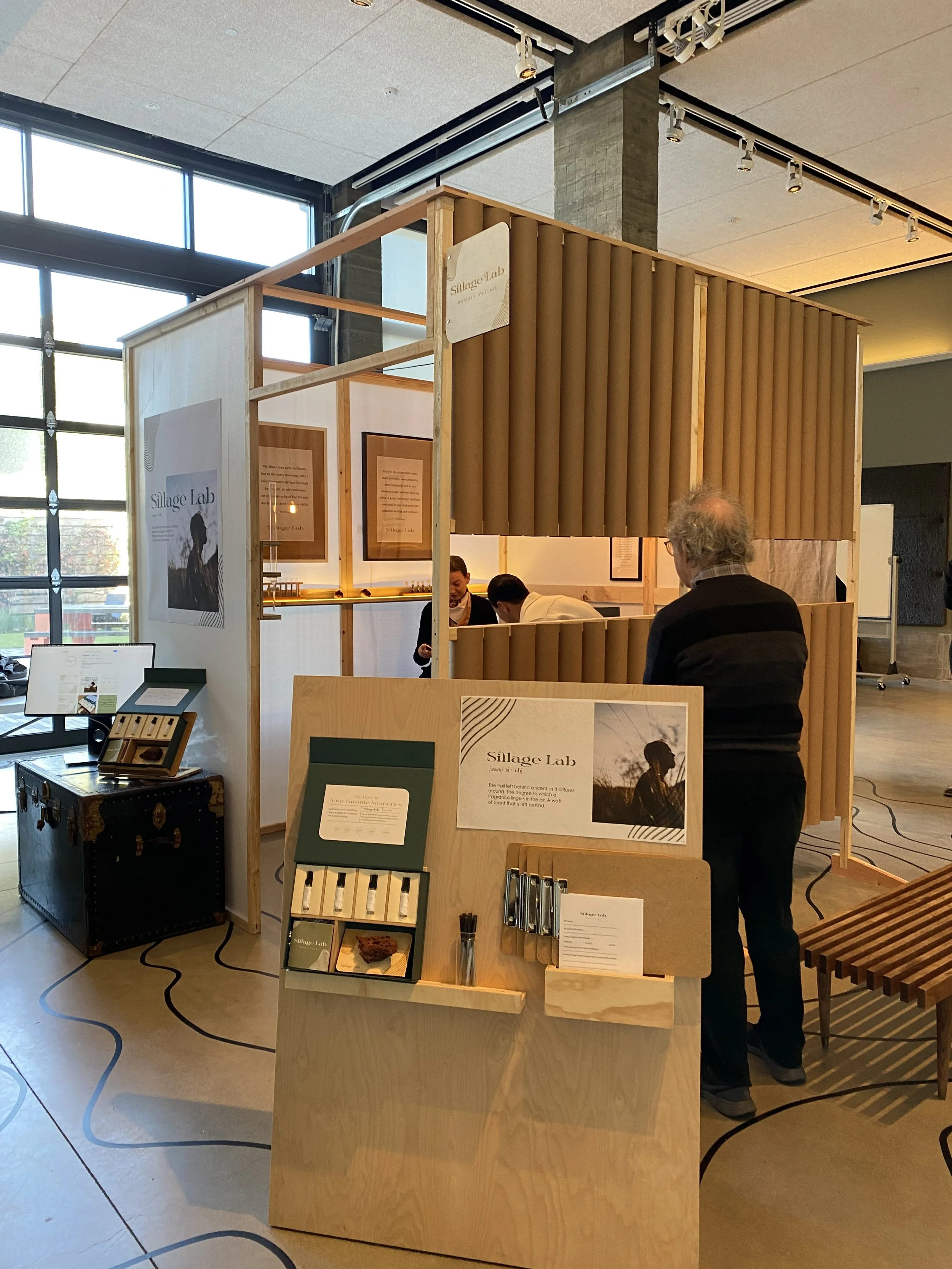TEACHING & EDUCATIONExperience Studio | CCA Design Strategy MBA
Experience Studio | CCA Design Strategy MBA
California College of the Arts | Design Strategy MBA Program, 2022-2024 | Role: Co-Lecturer
Overview
I co-taught the semester Experience Studio course in CCA’s MBA in Design Strategy program, where students explored the future of retail through the lens of experience design. The studio challenged teams to design phygital pop-up retail experiences—combining physical and digital touchpoints—to address emerging customer needs. Drawing from frameworks like Jobs to Be Done and the 5E Experience Model, students worked across five residencies to research, prototype, and launch retail concepts.
Course Context
Experience Studio sits at the intersection of design, business strategy, and systems thinking. Our theme was “Future of Retail”, inspired by trends accelerated by the pandemic—from contactless commerce to immersive brand spaces. Students worked in teams to create scalable, inclusive, and multisensory experiences grounded in real human needs and tested in live environments.
Learning Outcomes
Applied Jobs to Be Done and 5E Experience Framework to frame opportunity areas
Designed retail concepts that integrated physical and digital touchpoints (“phygital”)
Prototyped and tested immersive environments featuring sensory design and transactional flows
Practiced rapid experimentation, critique culture, and storytelling in a real-world studio format
Explored how retail can build connection, meaning, and value beyond the transaction








TEACHING APPROACH
The course was structured around five residencies guiding teams from insight to execution. I co-developed the curriculum, led critiques and activities, and mentored teams throughout. From framing to pilot testing, we emphasized intentionality, inclusion, and experimentation—core mindsets of experience design.
FRAMING THE OPPORTUNITY
We began by exploring cultural, technological, and behavioral shifts reshaping retail. Students selected a theme and investigated it through research, JTBD, and experience audits—identifying opportunity areas rooted in human needs and developing them further through prototyping, testing, and iteration across multiple levels of fidelity.
RAPID PROTOTYPING & ITERATION
Midway through the studio, teams moved from insight to action—starting with small-scale prototypes, storyboards and mock brand activations, then advancing to full-scale spatial simulations. Using low-fidelity materials, students explored flow and interaction, refining ideas through critique and testing across multiple levels of fidelity.
FINAL SHOWCASE
Students built branded phygital pop-up experiences as their final project, receiving feedback from guest critics in design, brand, and retail. Projects ranged from zero-waste fashion to AI-enhanced wellness—each grounded in human-centered research and designed to explore what retail could look like in the near future.




